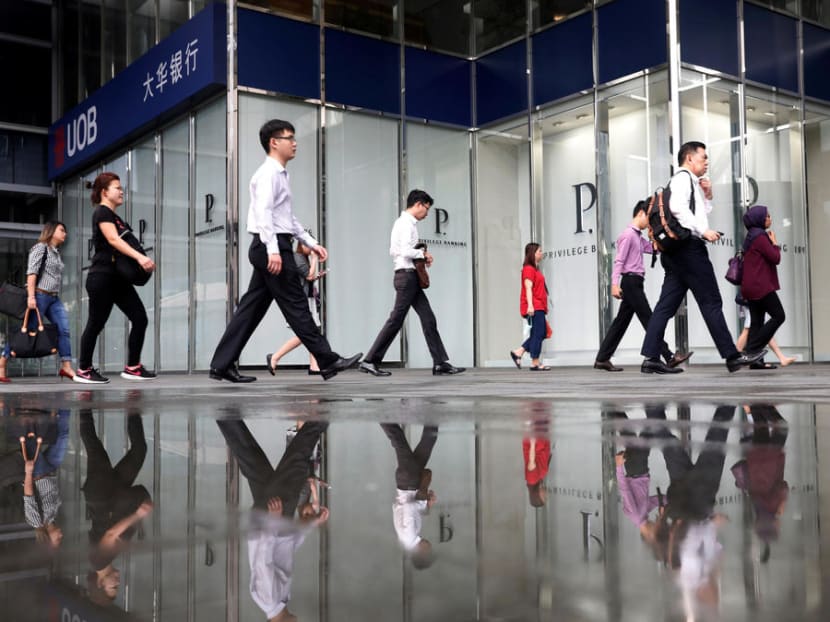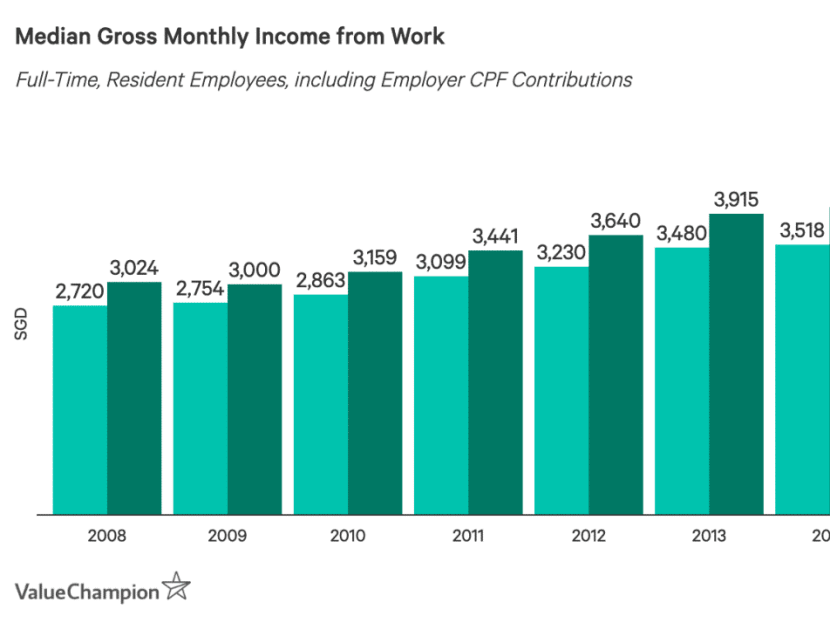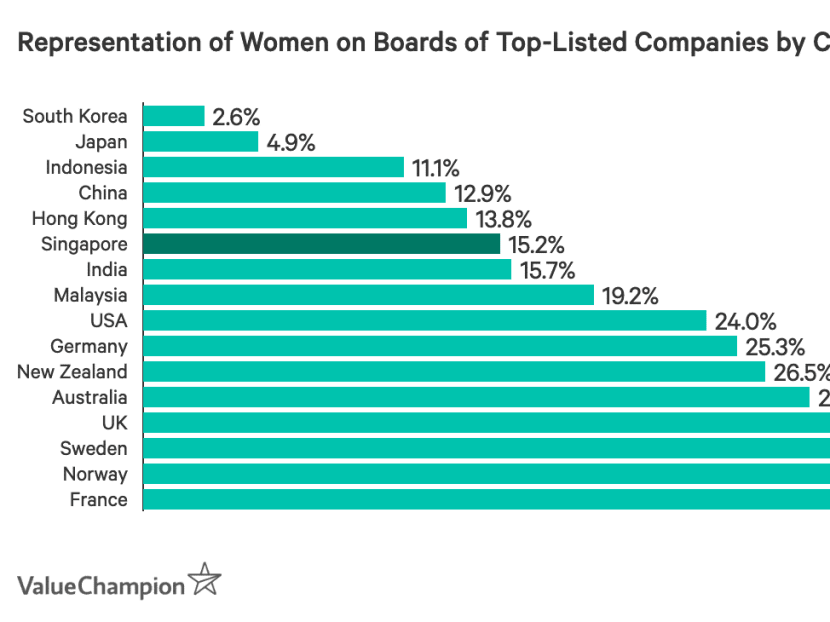Singapore’s gender wage gap widens in 2018
SINGAPORE — The wage gap between men and women in Singapore increased in 2018 to the widest in a decade, an analysis of the Manpower Ministry’s labour statistics has shown.

The overall gender wage gap may be due to occupational differences. Men are much more likely to work in engineering and technical roles, which tend to pay high wages, a consumer research firm said.
SINGAPORE — The wage gap between men and women in Singapore increased in 2018 to the widest in a decade, an analysis of the Manpower Ministry’s labour statistics has shown.
The median wage for women working full-time was 87.5 per cent of that for men, widening from 90.8 per cent in 2017, consumer research firm ValueChampion said in a report published on Thursday (Feb 28).
The report said that this wage discrepancy does not account for job title, education level or work experience, but is “still relevant” as it gives a picture of about how much men and women earn in Singapore, on average.

The firm added that it “did not survey individuals or companies and therefore are unable to assess whether or not women are being paid less for specific jobs that they are equally educated and qualified to perform”.
WHERE THE GAP WAS WIDEST
The health and social services industry had the widest gap — the median wage for women was 62 per cent of that for men.
Other industries where the median wage for women was lower than 80 per cent of men’s include manufacturing, information and communications, and accommodation and food services.
At the other end of the spectrum was the transportation and storage industry, where women’s median pay was 127 per cent of the median wage for men. However, this was still a steep drop from 2017 — where women’s median pay was 150 per cent of the median wage for men.
THE CAUSES
The overall gender wage gap may be due to occupational differences as women are much more likely than men to work in service, education and care-related roles — 91 per cent of personal care workers are female.
Conversely, men are much more likely to work in engineering and technical roles, which tend to pay high wages, the report noted. Only 26 per cent of engineering professionals are female.
The gender wage gap may also be attributed to differences in the total number of hours worked. On average, women in Singapore work 44.5 hours per week — 2.3 fewer hours than men.
The report said: “Working longer hours may help with career advancement and eventually lead to higher pay.”
However, this does not necessarily mean that women are working less hard than men, the report added.
"Women tend to spend more time on housework compared to men. In turn, this can mean that women end up working fewer hours at their job due to taking care of household chores and childcare, burdens that are not typically borne by men."
Looking at it at a global level and where men and women did similar work, the World Economic Forum’s survey of wage equality between women and men placed Singapore at second spot behind Iceland in 2018. Singapore was fourth in 2016.
NOT EVERYTHING IS GLOOMY
ValueChampion's report did present some positive trends: The proportion of board seats held by women more than doubled — from 7.5 per cent in 2013 to 15.2 per cent in 2018 — while the gender wage gap for part-time workers narrowed with women earning median salaries that are 94 per cent of men’s in 2018. This is a significant improvement from the 86 per cent in 2008.

Although the proportion of women on boards of public companies increased to 15.2 per cent in 2018, Singapore is still lagging in this area, the report said.
For comparison, Malaysia outpaces Singapore at 19.2 per cent, while Norway and France leave Singapore in the dust with more than 40 per cent.









